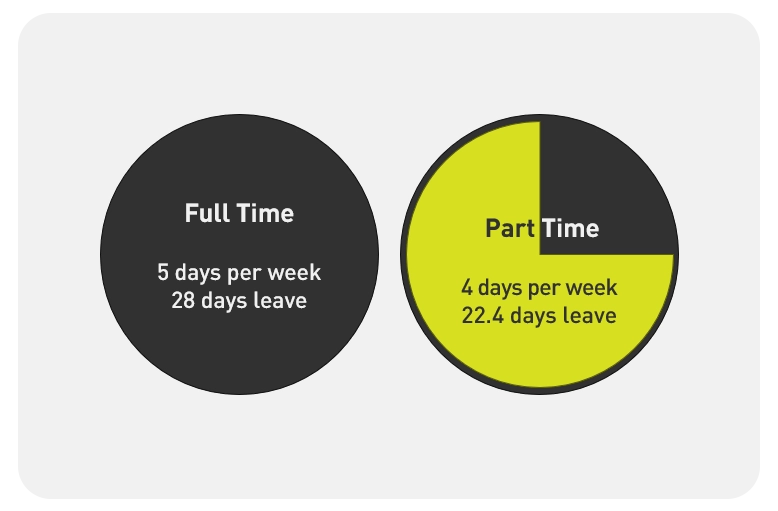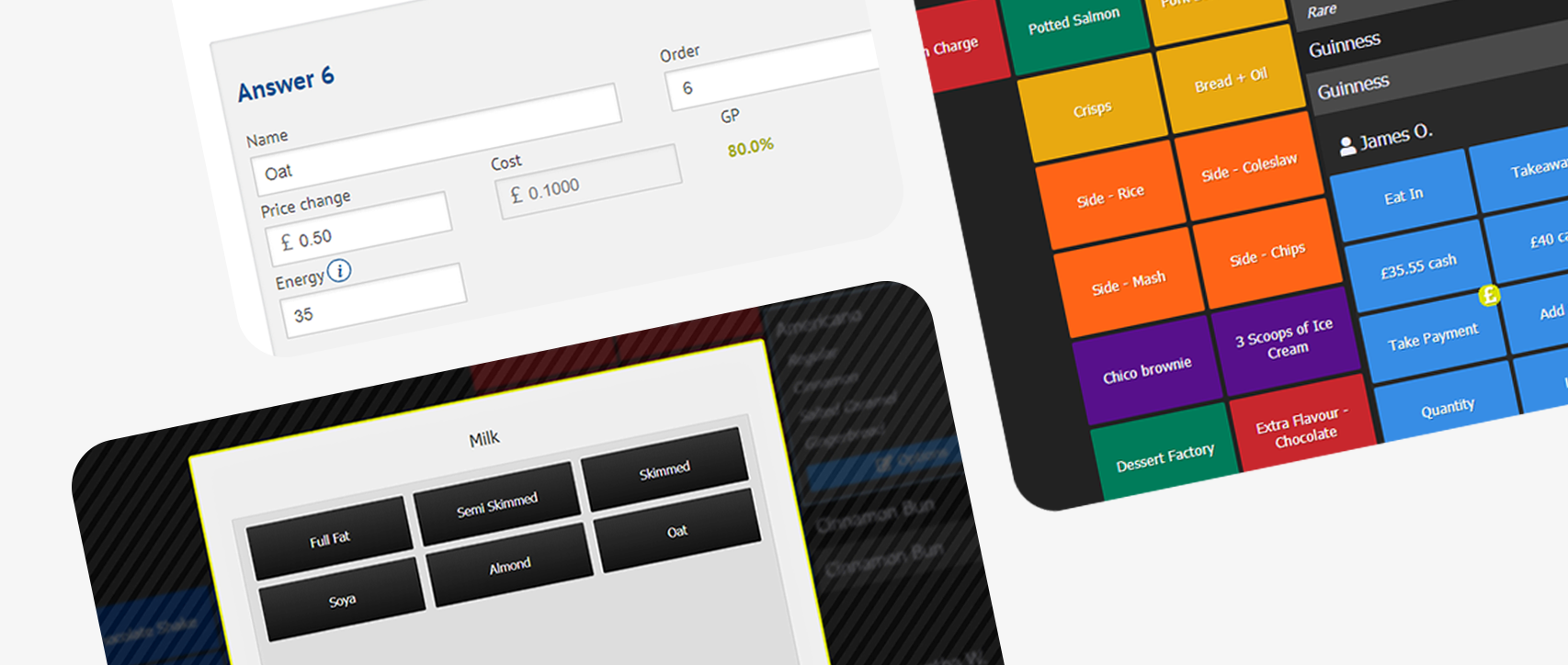Do shift changes and unpredictable schedules leave you scrambling to manage your staff’s holiday pay? You’re not alone. Legal changes from 1 January 2024 in the UK specifically address how irregular hours and part-year workers accrue holiday entitlement. In this blog post, I will summarise the key changes and offer tips to ensure you’re compliant and your employees are happy.
Hospitality operators must stay updated with relevant legal changes, particularly regarding holiday adjustments. Being abreast of these matters ensures smooth operations and compliance with labour laws in an industry that thrives on flexibility and adaptability.
Recent legal changes have created the distinct definition of Irregular Hours and Part-Year Workers, which these changes apply to. Although, there are no changes to those workers on fixed-hours contracts. The changes in the past years have aimed to ensure that those workers without fixed hours are not discriminated against compared to their fixed-hours colleagues when it comes to paid time away from work.
Catch up on topics like this at Kobas Unplugged events
We recently discussed this topic at one of our hospitality events, Kobas Unplugged. It was great seeing so many attendees at the event in London. But, if you missed it, fear not – we have more lined up. Wondering what these events are all about? To summarise, Unplugged is where we take a step back to speak with our clients and the wider industry about what affects us all, share information, and have discussions about it. We take Unplugged across the UK throughout the year, so feel free to join us and many others at an event near you.
How did we get here?
Caelan Chambers, Senior Account Manager at Kobas – Speaking at Kobas Unplugged
Over the past 26 years, iterative legal changes in the United Kingdom have led to an update in the statutory regulations that have come into effect for leave years beginning on or after 1st April 2024. Here are the key milestones along that journey:
- Working Time Regulations 1998 – Introduced many of the safeguards we enjoy in our workplaces currently including the cap on the working week, night work, rest periods per day and week, in-work breaks and paid annual leave.
- European Court of Justice ruling 2006 – Confirmed that rolled-up holiday pay (see the Holiday Pay section) was incompatible with the Working Time Regulations, effectively making it illegal.
- UK Supreme Court ruling 2022 – Ruled that the common way to calculate holiday (accrued at 12.07% of salary) was discriminatory to part-year workers. They should be entitled to the full 5.6 weeks of holiday pay based on their average workweek earnings. This decision was controversial because part-year workers could receive a higher proportion of their annual pay for holidays than full-time employees.
- Employment Rights (Amendment, Revocation and Transitional Provision) Regulations 2023 – Implements new rules for calculating holiday accrual and pay for irregular hours and part-year workers and addressing nuanced situations such as when employees start or leave mid-way through the leave year. Thus, the legislation aims to achieve parity for all workers.
Why is this so difficult?
It’s clear from the iterative legal changes spanning three decades that the issue is complex here, and ensuring that the system is fair to all of our workers is not easy.
The starting point is that all UK workers are legally entitled to 5.6 weeks of time away from work, paid. The complexity comes down to applying the underlying maths to work out what that 5.6 weeks look like for workers with hours that are not fixed.
Workers with fixed hours will always know what a working week consists of regarding days or hours worked and pay. When they take a whole or part week away from work, it is easy to work out how many days or hours they will use and what to pay them.

Looking at workers who do not have the security of a fixed working week, this calculation becomes increasingly difficult to be accurate and fair. Previous attempts to make positive changes have had negative consequences:
- The 2006 ruling removed the ability to pay “rolled-up holiday pay” because it was felt this could encourage workers not to take their leave to earn more money and would be detrimental to worker’s welfare.
- The 2022 ruling attempted to ensure that part-year workers still get 5.6 weeks of paid leave with proportionate pay, acknowledging that the 12.07% accrual method could see workers earning more or less leave than a fixed-worker counterpart in different circumstances. However, the change implemented saw part-year workers, in some circumstances, earning more holiday than the time they had worked.
The changes
Here is a summary of changes for leave years beginning on or after 1st April 2024:
- Holiday Allowance – Accrues 12.07% of the hours worked on the last day of the pay period. There is a requirement to carry over unused days from the previous leave year. Accrual continued whilst on Statutory Sick or Parental leave, using the 52-week reference period to calculate this.
- Taking Holiday – The regulations do not state how to convert hours to days, but ACAS suggest finding the average shift length. Kobas will work out using the past 52-week reference period.
- Traditional Holiday Pay – Workers are paid for each holiday day when not at work by finding the average pay over the last 52 weeks.
- Rolled-up Holiday Pay – Workers’ pay rate is increased by 12.07%. This must be a company-wide implementation, made clear in job adverts, contracts and payslips. The employer takes the onus to ensure staff still take 5.6 weeks away from work “unpaid” at the time.
Differences in other territories
Caelan Chambers, Senior Account Manager at Kobas – Speaking at Kobas Unplugged
The changes explored here relate to territories where holiday matters fall under the UK Government, primarily England, Wales and Scotland.
There are variations where this matter is devolved or prescribed by different governments within UK offshore territories. Kobas has specifically explored the differences in:
- Northern Ireland – There are different pay calculations for the first four weeks of leave to the subsequent 1.6 weeks. There is also no legal mechanism to provide rolled-up holiday pay.
- Isle of Man – The legal minimum holiday allowance is four weeks per year, meaning a maximum of 20 days per year, and accrual is 8.33% of hours worked.
Kobas also provides services within the EU, and we have also explored the differences within the Republic of Ireland. It’s interesting to note that there are different calculation methods for various scenarios in the ROI, which adds a layer of complexity. As with the Isle of Man, the annual allowance is four weeks, with accrual at 8.33%. We will explore ROI in more depth at a separate event.
What this means for your business
Compliance is easy
These changes make compliance easier, removing many complex calculations. ACAS has written some excellent, straightforward guidance.
Review your current staff
Take a look at contract types and ensure you have categorised them correctly.
Embrace transparency
Ensure that hours worked and holiday calculations are recorded and available to your workers.
Invest in systems and seek help
If you are unsure, there is no replacement for advice from a professional in employment matters; they will also be able to recommend systems, such as Kobas, that can manage this for you.
Watch for staff burnout
Particularly if you use the “rolled-up holiday pay” method, make sure your team is taking time away from work to focus on their welfare.
Ensure employee fairness
Employers must decide on a fair and equitable system for booking time off for all employees. There’s a need to be mindful of discrimination based on contract type.
We would always recommend that, whilst having a good understanding of holiday accrual and pay is ideal, ensuring you have advice from an employment specialist is important. Kobas is more than your tech provider; we are your tech partner with a real passion for and understanding of the industry. Whilst we choose our external references carefully, we cannot be responsible for the content of external websites or for actions you have taken based on the content of this article.
Please do not hesitate to get in touch should you have any questions about this article, holidays, or how the Kobas system can help you manage your hospitality team.
Want to see the Kobas system in action?
Kobas enables teams across the hospitality industry to manage all areas of the business, from one connected and complete system.


